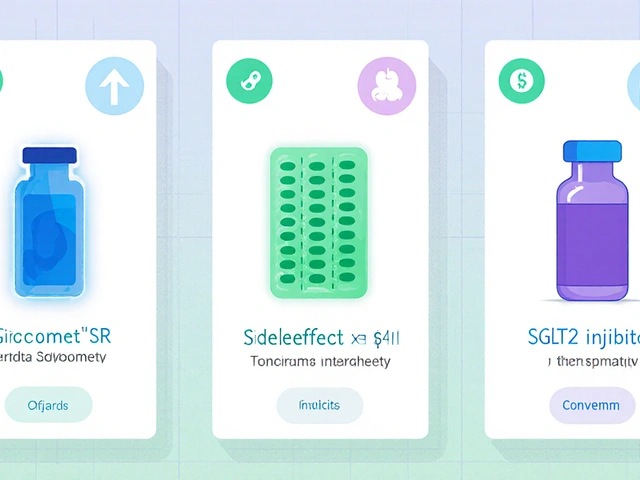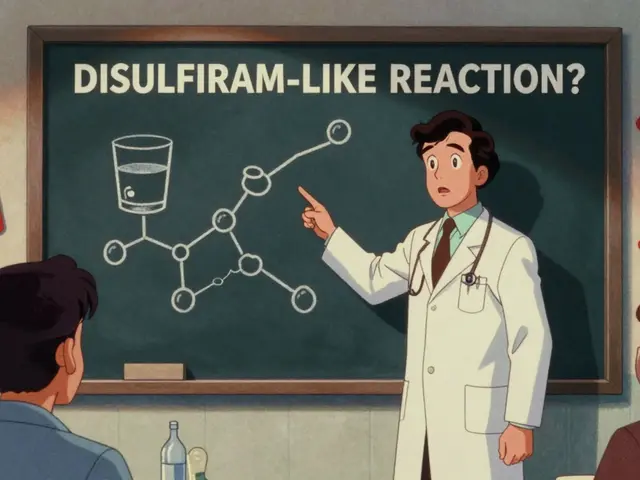Understanding HIV and Pulmonary Tuberculosis
As a blogger who deeply cares about the health and well-being of my readers, I would like to discuss the connection between HIV and Pulmonary Tuberculosis (TB). These two diseases unfortunately often go hand-in-hand and it is crucial to understand their relationship and how to manage them effectively. In this article, I will cover the following topics:
The Nature of HIV and Pulmonary Tuberculosis
First, let me briefly explain what HIV and Pulmonary Tuberculosis are. HIV, or Human Immunodeficiency Virus, is a virus that attacks a person's immune system, making it difficult for the body to fight off infections. Pulmonary Tuberculosis, on the other hand, is a bacterial infection that primarily affects the lungs, and can be highly contagious. People with weakened immune systems, such as those with HIV, are more susceptible to developing TB.
How HIV Increases the Risk of Developing Tuberculosis
HIV weakens the immune system, and as a result, individuals with HIV are more likely to become infected with TB. In fact, people living with HIV are 20 to 30 times more likely to develop active TB compared to those without HIV. This is because the immune system is less able to contain the TB bacteria, allowing it to multiply and cause a full-blown infection.
Signs and Symptoms of Pulmonary Tuberculosis
It is essential to be aware of the signs and symptoms of Pulmonary Tuberculosis, especially if you have HIV. Some common symptoms include a persistent cough lasting more than two weeks, chest pain, weight loss, fatigue, night sweats, and coughing up blood. If you are experiencing any of these symptoms, it is important to see a healthcare professional as soon as possible for proper evaluation and diagnosis.
Diagnosis and Treatment of Tuberculosis in HIV-Positive Individuals
Diagnosing TB in individuals with HIV can be more challenging due to the weakened immune system. However, healthcare professionals have various tests and tools to diagnose TB accurately. These tests can include a tuberculin skin test, blood tests, chest X-rays, and sputum tests. Once diagnosed, an appropriate treatment plan can be developed, which usually involves a combination of antibiotics taken over several months. It is crucial to follow the treatment plan closely and take all prescribed medications to ensure the best possible outcome.
Impact of Tuberculosis on HIV Progression
Pulmonary Tuberculosis can accelerate the progression of HIV, leading to a more rapid decline in immune system function. This is because the body is working harder to fight off the TB infection, making it more susceptible to other infections and illnesses. This highlights the importance of early detection and treatment of TB in individuals with HIV to help maintain overall health and well-being.
Preventive Measures to Reduce the Risk of Tuberculosis
There are several preventive measures that individuals with HIV can take to reduce their risk of developing TB. These include regular check-ups with healthcare professionals, maintaining a healthy lifestyle, and taking preventive medications if recommended by a doctor. Additionally, it is important to avoid close contact with individuals known to have active TB, as the infection can spread through the air when an infected person coughs or sneezes.
The Importance of HIV Treatment in Preventing Tuberculosis
One of the most effective ways to prevent TB in individuals with HIV is to ensure proper treatment and management of HIV. By taking antiretroviral medications as prescribed, the immune system can be strengthened, making it less likely for TB bacteria to take hold and cause an active infection. This highlights the importance of regular medical care and adherence to an HIV treatment plan.
Conclusion: A Call to Action for Awareness and Prevention
In conclusion, understanding the connection between HIV and Pulmonary Tuberculosis is essential for those living with HIV. By being aware of the signs and symptoms of TB, seeking prompt medical care for any concerns, and adhering to a proper HIV treatment plan, we can greatly reduce the risk of developing TB and improve the overall health and well-being of individuals with HIV. Let's work together to raise awareness and support those affected by HIV and TB, and strive for a healthier future for all.







Let me tell you something that no one else is brave enough to say: the medical establishment is actively downplaying how much TB spreads in HIV clinics because of funding biases. You think it's just about weak immunity? No. It's about overcrowded wards, poor ventilation, and pharmaceutical companies pushing ARVs while ignoring TB prevention programs. I've seen it in Delhi slums-kids coughing for months before anyone tests them. And don't even get me started on how 'preventive meds' are rationed like candy in a war zone. This isn't science-it's systemic neglect dressed up as public health.
I knew it. I KNEW IT. 🤫 The CDC and WHO are hiding the truth-TB isn't just *worse* in HIV patients, it's being engineered to be. Look at the patent filings: 2018, a new strain was patented under 'immune modulation for targeted delivery.' Coincidence? NO. They want us dependent. The night sweats? That's the nanobots activating. The cough? That's the signal being transmitted. I'm not crazy-I'm just the only one with the access logs. 🚨
If you're living with HIV, get tested for TB every six months. Period. No excuses. Your CD4 count doesn't lie. If you're asymptomatic, you're not safe-you're just waiting. Start with the IGRA blood test, not the skin test. And if your doctor says 'wait and see,' find a new doctor. This isn't optional. Your life depends on catching it early. No drama. No fluff. Just action.
AMERICA IS THE PROBLEM. We export our drugs but not our responsibility. India and Africa get the TB burden and the stigma while Big Pharma gets rich. I saw a video of a woman in Nairobi with TB and HIV, and she had to walk 12 miles for meds. Meanwhile, my cousin in Ohio gets a free pillbox and a Spotify playlist about 'mental wellness.' This is colonialism with a stethoscope. We need revolution. Not more pamphlets. Not more 'awareness.' REPARATIONS.
i just wanted to say… i had tb + hiv 3 years ago and i’m alive today 💪 the meds sucked but i took them. every. single. day. even when i cried. even when i was tired. even when my mom said ‘maybe you should rest.’ i didn’t. and now i’m working, traveling, laughing. it’s not easy but it’s possible. you got this. 🌱
You think it's just about meds? Try living in a house with six people, one window, and no AC while your roommate coughs through the night. Then tell me it's about 'personal responsibility.' I’ve seen people die because they couldn’t afford the bus fare to the clinic. The system doesn’t care if you’re compliant if you’re poor. This isn’t a medical issue-it’s a poverty issue. And we’re all complicit.
I’ve worked in clinics across three states. The most important thing I’ve learned is this: trust matters more than treatment guidelines. If someone doesn’t believe their provider cares, they won’t take the pills-even if they know it’ll kill them. So we don’t just hand out meds. We sit. We listen. We remember their kid’s name. We show up. That’s how we save lives. Not with more tests. Not with more posters. With presence.